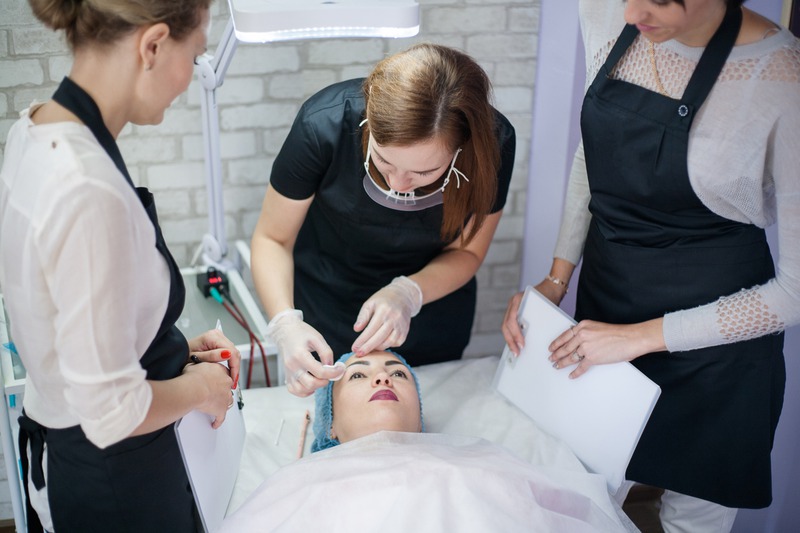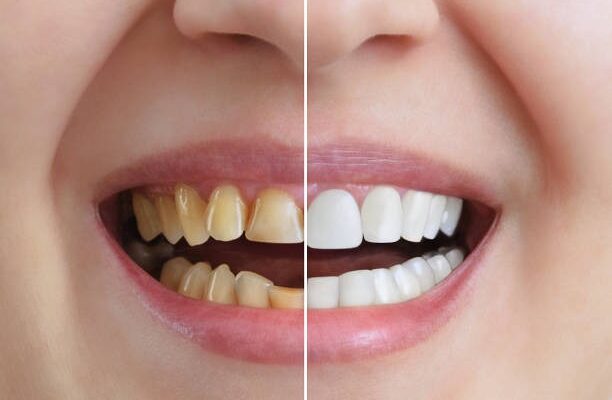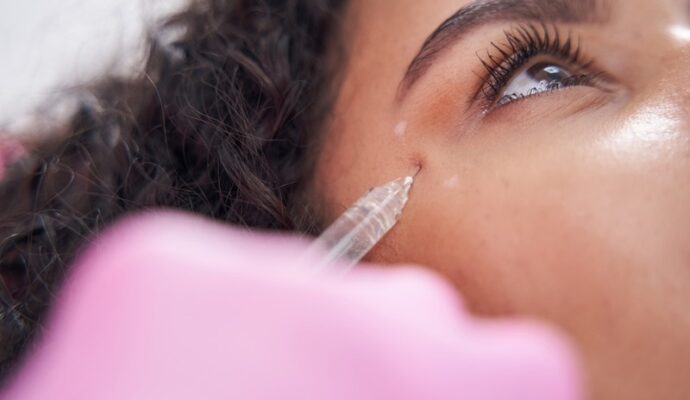A medical aesthetician course prepares individuals for rewarding careers in the beauty and wellness fields. These courses cover a wide range of skills and knowledge areas, allowing participants to become proficient in various skincare treatments and techniques. Such training qualifies students to perform different beauty treatments in professional spa and clinic environments, ensuring safe practice and impressive client results.
What Can You Expect to Learn from a Program in Medical Aesthetics?
Skin Analysis and Client Consultation Techniques
Proper skin analysis is central to a successful beauty treatment, helping aestheticians accurately identify skin types and conditions. Courses teach students how to visually analyze skin and effectively identify issues such as acne, hyperpigmentation, dehydration, and aging. Practical instruction emphasizes understanding factors affecting the skin and providing customized recommendations.
Alongside assessment skills, students receive guidance on conducting an effective consultation with clients to understand their specific needs and goals. Courses include how to build rapport, communicate clearly and professionally, document client information, maintain records, and adhere to patient privacy standards and practices. Successful consultation ensures treatment meets client expectations and supports positive outcomes.
Facials and Skin Treatments
Facial and skin treatments are core topics within the coursework, providing techniques for cleansing, exfoliation, steaming, extraction, mask applications, and skin hydration procedures. Students learn which facial products and procedures suit particular skin conditions and client skin types. Both theory and hands-on application safeguard proficiency and confidence in delivering skin care treatments.
Advanced facial procedures introduced in the aesthetics training include chemical peels, microdermabrasion, and crystal-based exfoliation techniques. Each student gains training focused on the safe and appropriate application and selection of treatments based on each client’s requirements. This practice ensures safe use of different technologies and chemical exfoliants in aesthetic settings.
Laser and Light-Based Therapies
Many modern aesthetic practices now focus heavily on laser and light-based therapies for procedures related to hair removal, skin resurfacing, and rejuvenation techniques. Students learn the scientific principles behind lasers, intense pulsed light (IPL), and other light-based devices. Proper training emphasizes safety protocols and prevention of injuries during these powerful light therapies.
If you consider visiting a reputable laser clinic St. Catharines, having professionals skilled in laser and IPL therapy can greatly enhance client satisfaction. Courses equip aestheticians with the necessary knowledge, including settings and parameters, skin typing, and understanding contraindications for safe and optimal outcomes. This training helps aestheticians deliver advanced services with precision and care.
Body Treatments and Skin Rejuvenation
Aesthetician schools feature significant training in treatments addressing the skin on the entire body, not just the face. Methods taught include cellulite reduction, body exfoliation, wraps, and scrubs designed to improve the skin’s look and texture. Students gain skills in performing relaxing treatments, detoxifying wraps, and toning therapies for improved client relaxation and satisfaction.
Skin rejuvenation techniques in courses include radiofrequency and ultrasound technologies, which have become staples in medical aesthetics practices. Students learn how to rejuvenate aging and sagging skin through proven technologies, resulting in smoother, firmer, and youthful-appearing skin. These therapies complement other treatments and allow medical aestheticians to offer ample rejuvenation to clients.
Medical Aesthetic Injectables and Fillers
A fundamental area covered within advanced aesthetician coursework is injectables, such as Botox and dermal fillers, used for skin rejuvenation and wrinkle reduction. Proper handling, injection techniques, understanding facial anatomy, and safe usage methods are essential skills gained in training. Students learn from trained professionals on safely managing injectable procedures responsibly and effectively.
For instance, those interested in offering treatments such as lip fillers in St. Catharines, ON receive expert guidance ensuring they develop precision skills and confidence. Through this comprehensive training, aestheticians become adept in creating natural-looking results and improving skin’s appearance without surgical procedures. Continuous education encourages maintaining proficiency in these techniques after certification.
Hair Removal Techniques
Courses provide training in popular hair removal procedures such as waxing, sugaring, threading, and laser techniques. Each hair removal method has distinctive benefits and proper practices. Schools ensure participants gain knowledge about skin preparation, hygienic practices, pain management, and aftercare advice needed to effectively and confidently conduct these treatments.
Modern hair removal practice usually incorporates training on advanced IPL and laser therapies designed to slow hair regrowth and achieve nearly permanent results. Aestheticians learn detailed concepts relating to skin type assessments, laser selection, and safe techniques for decreasing hair growth cycles. Such specializations position graduates strongly within professional aesthetics centers and treatment clinics.
Cosmetic Chemistry and Product Knowledge
Understanding cosmetic ingredients, formulations, and efficacy contributes significantly to successful aesthetic practices. Cosmetic chemistry topics let students recognize active components found within skin care products, moisturizers, serums, and exfoliants utilized in procedures. Identifying small variances in product applications benefits treatment outcomes and promotes healthy and attractive skin.
A good educational course also covers common irritants, allergens, and contraindications linked to skincare products and ingredients. Students learn how to educate clients, apply safe alternatives, and ensure personalized skincare routines, contributing to quality care. Detailed education ensures that aestheticians possess abundant product knowledge crucial for client satisfaction and credibility within their fields.
Practice Management and Business Skills
Aesthetics courses teach students the fundamentals of successfully managing or working within beauty-based businesses and medical spas. This learning equips aestheticians with essential communication, marketing, customer relations, scheduling, inventory management, and legal considerations. Well-executed practices lead directly to positive customer experiences, organized workflows, and profitable businesses.
Training involves instruction in business ethics, client confidentiality, professional regulations, and appropriate documentation practices. Courses highlight practical scenarios, helping students make informed decisions in real-life workplace environments. Those possessing these business capabilities also get competencies useful for future entrepreneurial pursuits and professional advancements.
Compliance, Safety, and Hygiene
Ensuring safety and sanitation comprises a significant part of aesthetician education due to regulatory concerns and patient safety. Courses educate students about maintaining impeccable cleanliness, disinfecting equipment, following infection control standards, and general personal protection measures. Practical demonstrations ensure these methods become habitual parts of aesthetic treatment processes.
Those who register for a reputable Canada medical aesthetician course receive training that complies with all relevant health and safety regulations. The highest-quality standards incorporated throughout the curriculum ensure compliance with local, provincial, and national guidelines. Students gain confidence providing safe aesthetic services essential for operating successfully within regulated professional environments.
Final Thoughts
A medical aesthetician course covers extensive topics, shaping well-rounded professionals capable of excellent client service across multiple beauty treatments. Completion grants essential knowledge, safety practices, and practical skills vital for continued success. Choosing a course aligned with individual career objectives ensures long-term satisfaction in medical aesthetics.




